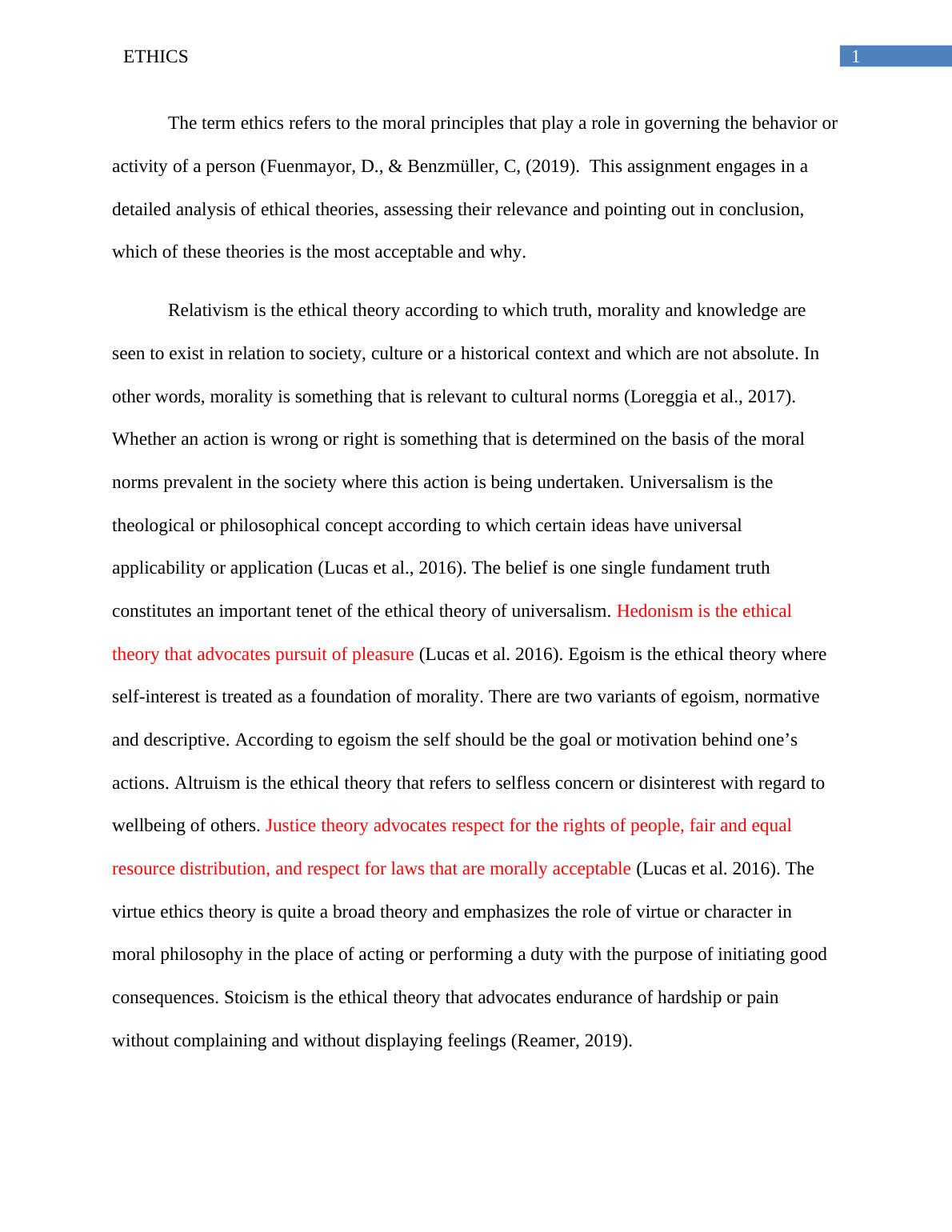Ethics Definition & Meaning
Added on 2022-08-26
5 Pages892 Words31 Views
End of preview
Want to access all the pages? Upload your documents or become a member.
Utilitarianism: An Ethical Theory Based on Outcomes
|4
|761
|139
Introduction to Ethics Assignment PDF
|5
|1096
|92
Business Ethics (Case Scenario 2)
|4
|809
|68
Corporate Governance, Financial Crime, Ethics and Control
|8
|2674
|208
Ethical Issues: Absolute Morality and 9/11
|8
|860
|330
Ethics in Social Science
|4
|940
|11


